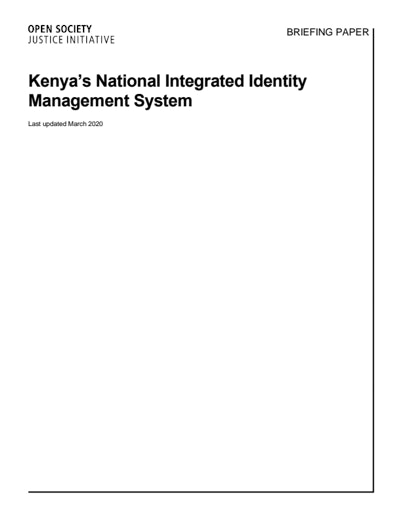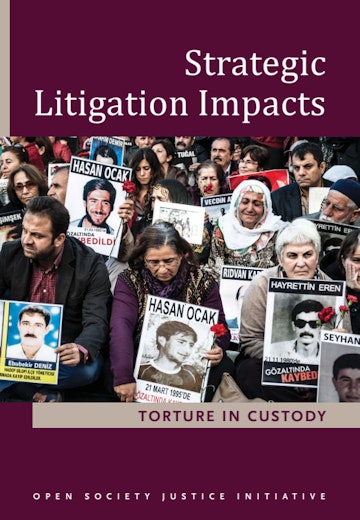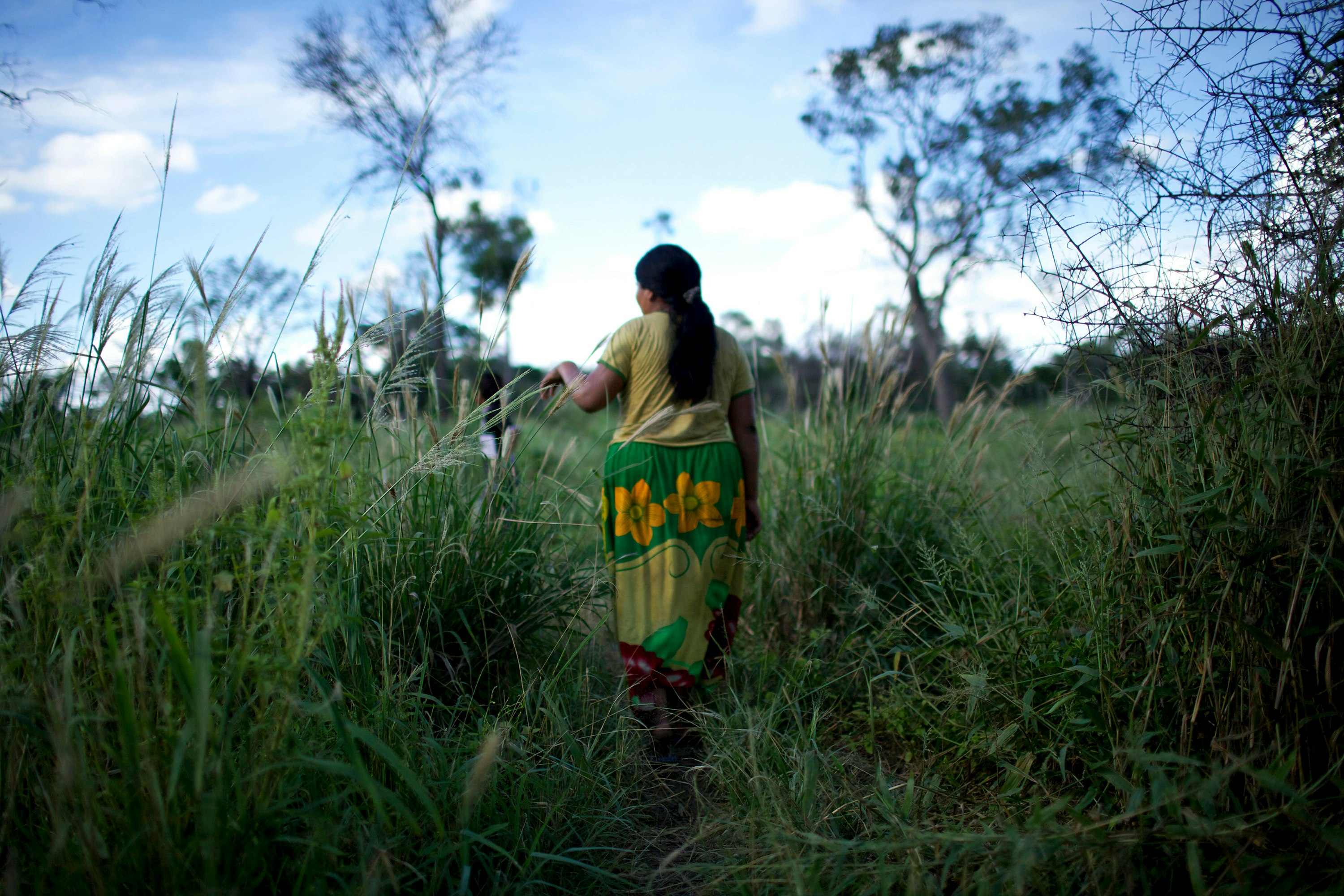Coalition on Violence Against Women and Others v. the Attorney-General of Kenya and Others
Victims of Sexual and Gender Based Violence Demand Accountability
Facts
Kenya’s national elections on December 27, 2007, were marked by significant ethnic violence. Immediately following the announcement of election results on December 30, 2007, large areas of the country erupted into violence. Violence continued from late December 2007 until March 2008, and eventually affected up to 136 constituencies in six of Kenya’s eight provinces.
Women and children often were targeted for attack. They were sexually assaulted in their homes and while seeking refuge in informal camps in schools, police stations and other public sites.
Many victims of sexual violence did not report the crimes committed against them because they feared that nothing would be done to assist them or that the police would protect state-actor perpetrators. When victims sought to report the attacks, the police were often unwilling to document their complaint or initiate an investigation.
Many victims of sexual violence were also unable to access medical services after their attack, due in part to the deterioration of order during the post-election violence and because they were sometimes turned away by hospitals and medical facilities.
The scope and scale of sexual and gender based violence during post-election violence is not fully known, but substantial information has been collected and reported from some hospitals and by civil society organizations.
For example, data from Nairobi Women’s Hospital show that more than 600 women were treated within the first 72 hours of their attack. Eighty percent of the victims had been raped, approximately half of whom were children. Victim studies show widespread incidents of rape, gang rape, and forced pregnancy.
Some men were also victims of gender based violence, particularly Luo men who were forcibly ‘circumcised,’ mutilated, or had their penises forcibly amputated.
While many of the perpetrators were non-state actors including members of organized gangs, some crimes were also committed by the police and other security forces.
To date, the government has not conducted credible investigations, and no one has been prosecuted for sexual offenses committed during the post-election violence. In one study, nearly 40 percent of rape victims (over 200 victims) could identify their attacker, but even these victims had not been interviewed as part of a criminal investigation.
Four Kenyans faced trial at the International Criminal Court (ICC) in the Hague for orchestrating crimes against humanity committed during the post-election violence (see the Open Society Justice Initiative International Justice Monitor website for further details). The charges at the ICC included crimes against humanity for rape and other forms of sexual violence, but only in relation to two locations (in and around Nakuru town and Naivasha town), whereas sexual violence crimes were committed in numerous locations during the post-election violence.
The victims ask the Court to order the government to establish an internationalized, independent body for the investigation and prosecution of the crimes, which they contend amount to crimes against humanity.
Open Society Justice Initiative Involvement
The Justice Initiative is acting as advisors to the Kenyan NGOs and lawyers.
Arguments
Sexual and gender based violence during Kenya’s 2007/2008 post-election violence and the failure to punish perpetrators and provide reparations to the victims violate numerous provisions of Kenyan and international law.
The right to life, prohibition against torture, and right to security of the person. The Kenyan authorities failed to take adequate security measures, including training police and planning and preparing law enforcement operations to ensure that such operations were conducted lawfully and protected civilians from sexual and gender based violence, failed to issue lawful orders on the use of force, and failed to adequately supervise the police, in violation of the Constitution and international law.
Failure to investigate and prosecute. By failing to conduct prompt, independent and effective investigations into police shootings, Kenya violated its duty to investigate violations of the fundamental rights of the victims as protected by the Constitution and international law.
The right to effective remedies. For five years the Kenyan government has denied justice, compensation, and rehabilitation to the victims of police shootings during the post-election violence. Kenya must provide compensation for general damages, medical and psychosocial care, social services, provide access to the relevant information concerning the violations and reparations mechanisms, and issue a public apology that acknowledges the facts of sexual and gender based violence during post-election violence and accepts the government’s responsibility for the suffering of the victims.
Hearings resume with reopening of Petitioner evidence.
Case reassigned to a newly appointed judge.
Petitioners close their case.
Hearings on the merits begin. Hearings included testimony of 15 witnesses: eight survivor petitioners; four Kenyan and international experts on state responsibilities for sexual violence; three psychological care, medical care, and social care witnesses.
Four Kenyan NGOs and eight victims of sexual and gender based violence file a case in the Nairobi High Court against six Kenyan government officials for failing to investigate and prosecute the perpetrators of crimes.
Charges against four Kenyan officials for crimes against humanity are confirmed at the ICC.
The International Criminal Court finds a reasonable basis to investigate Kenya’s post-election violence as crimes against humanity.
The Kenyan parliament votes against the establishment of the proposed tribunal made up of Kenyan and international judges to address the post-election violence.
The Commission of Inquiry on Post-Election Violence, aka the “Waki Commission” issued its report including a chapter dedicated to sexual offenses and calling for the establishment of a special tribunal for the prosecution of these crimes.
Rival candidates, Kibaki and Odinga, signed power-sharing agreement creating a coalition government.
Demonstrations and violence break out immediately after contested elections results are announced.
Kenyans vote in national elections.
Related Cases
Related Work
Kenya's National Integrated Identity Management Scheme (NIIMS)
Kenya's introduction of a national digital identity scheme has triggered protests from local human rights and community groups concerned with both privacy, and the scheme's impact on minority communities.

Strategic Litigation Impacts: Torture in Custody
This study looks at how activists in Argentina, Kenya, and Turkey have sought to use the courts to secure remedies for torture victims and survivors, bring those responsible to justice, and enforce and strengthen the law.

Losing their Land, Indigenous Peoples Turn to the Courts
Paraguay's Yakye Axa people lost control over their traditional forest lands to cattle ranchers and soy farms. A new report looks at their efforts to use litigation to claim compensation.
